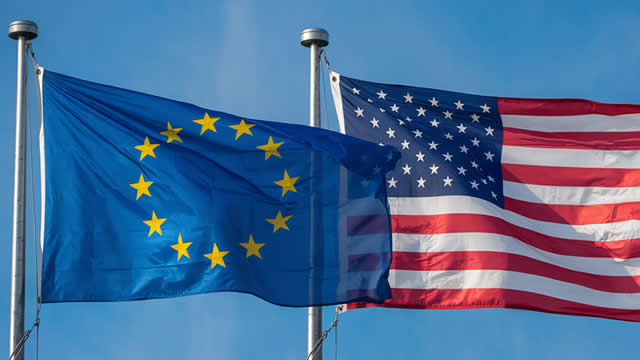The Pound’s Uncertainty Against the Euro: Rabobank’s Insight
Yesterday, the British Pound (GBP) experienced a significant unwinding of its gains against the Euro (EUR), indicating a lack of confidence in the pound’s robustness as a hedge against the heightening trade tensions between the United States (US) and the European Union (EU). This observation comes from Jane Foley, Rabobank’s Senior FX Strategist.
Background: The Trade Tensions
Trade tensions between the EU and the US have been escalating over the past few months, with both sides imposing tariffs on each other’s goods. The latest development came last week when the US threatened to impose new tariffs on European cars, which could potentially lead to a full-blown trade war. This uncertainty has been affecting global financial markets, with the pound being one of the currencies most affected.
The Impact on the Pound
According to Foley, the pound’s inability to hold its ground against the euro is a clear indication that investors are not convinced that the pound is a reliable hedge against the likelihood of a step-up in trade tensions. She explains, “The pound’s failure to gain traction against the euro despite the ongoing Brexit-related uncertainty is a clear sign that investors are not viewing the pound as a safe-haven currency in the face of renewed trade tensions between the US and EU.”
The Broader Implications
The pound’s weakness against the euro is not just an isolated incident. It is part of a broader trend of currency markets reacting to the increasing trade tensions between the US and EU. The US dollar, traditionally seen as a safe-haven currency, has also been losing ground against the Swiss Franc and the Japanese Yen. This trend is expected to continue as long as the trade tensions persist.
Implications for Individuals
For individuals with investments in currencies, the pound’s weakness against the euro could mean potential losses if they have positions in the pound. It could also make European holidays more expensive for British tourists. However, it could also present opportunities for those looking to buy pounds at a lower price.
Implications for the World
The trade tensions between the US and EU could have far-reaching implications for the global economy. If the trade war escalates, it could lead to a slowdown in economic growth, particularly in Europe, which is heavily dependent on exports. It could also lead to higher prices for consumers, as companies pass on the cost of tariffs to consumers.
Conclusion
The unwinding of the pound’s gains against the euro is a clear indication of the uncertainty surrounding the pound’s status as a safe-haven currency in the face of renewed trade tensions between the US and EU. This trend is expected to continue as long as the trade tensions persist, with potential implications for individuals with investments in currencies and the global economy as a whole. As Foley notes, “The pound’s weakness against the euro is a reminder that trade tensions are a significant risk for financial markets and investors need to be prepared for continued volatility.”
- The pound’s failure to hold its ground against the euro indicates a lack of confidence in the pound as a hedge against trade tensions
- The US dollar has also been losing ground against safe-haven currencies like the Swiss Franc and Japanese Yen
- The trade tensions between the US and EU could lead to a slowdown in economic growth, particularly in Europe
- Individuals with investments in currencies could face potential losses, while European holidays could become more expensive for British tourists
- Continued volatility is expected as long as the trade tensions persist





